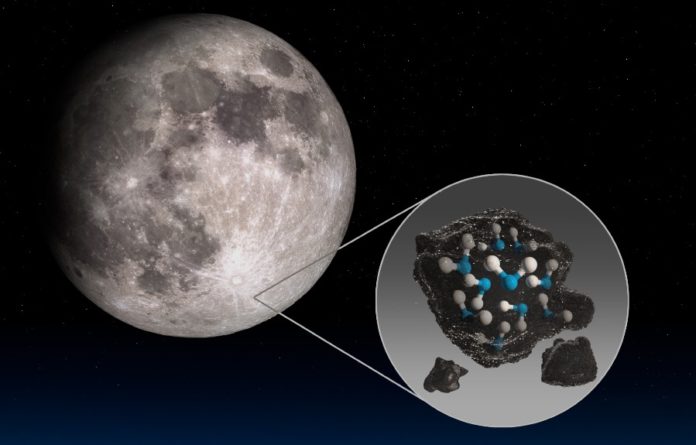Scientists at NASA announced on Monday that they have discovered water on the surface of the Moon, raising hopes for future exploration.
The discovery was made by a team using NASA’s Stratospheric Observatory for Infrared Astronomy (SOFIA), which is mounted on an airplane that flies at about 45,000 feet.
This is the first time water has ever been confirmed on the lunar surface. Until now it was widely believed that lunar water was limited to ice deposits in permanently shadowed craters at the Moon’s polar regions.
“Without a thick atmosphere, water on the sunlit lunar surface should just be lost to space,” said Casey Honniball, a postdoctoral fellow at NASA’s Goddard Space Flight Center in Greenbelt, Maryland.
“Yet somehow we’re seeing it. Something is generating the water, and something must be trapping it there.”
While the amount of water that was confirmed by observations is relatively small — about a 12-ounce bottle of water in a cubic meter of soil — scientists say this suggests water could be more common on the lunar service than earlier thought.
The discovery could have significant implications for the future of space exploration, and in particular lunar exploration.
“It’s far easier to travel when you don’t have to carry everything with you,” said Jacob Bleacher, Chief Exploration Scientist in NASA’s Advanced Exploration Systems (AES) Division, at a virtual teleconference on Monday.
“Water is extremely critical for deep space exploration.”
NASA currently has plans to send the first woman to the Moon in 2024 through its Artemis program, with a long-term goal of establishing a sustainable human presence there by 2030.
Bleacher said that today’s announcement won’t necessarily change how Artemis missions will be conducted in the short-term, but as they gather more data future missions could adapt based on the presence of lunar water.
“Artemis crewed missions will begin by bringing the water that they need, and will use that water, but one of the goals will be to continue to collect data that helps us understand what technology lines we need to follow to maybe one day be able to use the water that’s there.”


